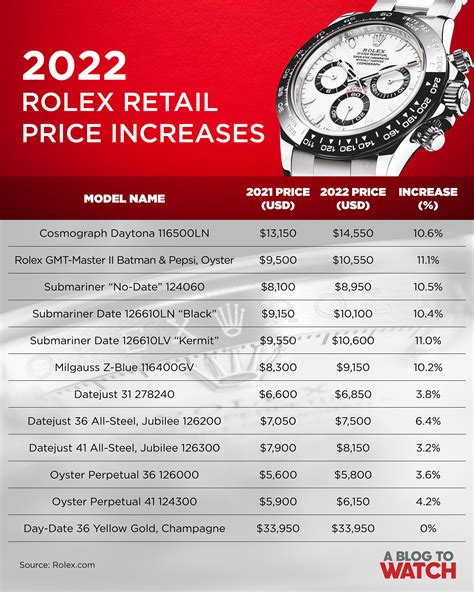average cost to service a rolex watch | Rolex watch maintenance cost
$248.00
In stock
Owning a Rolex is a significant investment, a testament to craftsmanship, precision, and timeless style. To ensure your Rolex continues to function flawlessly and retain its value, regular servicing is paramount. However, understanding the average cost to service a Rolex watch can be daunting, as various factors influence the final price. This comprehensive guide breaks down the expenses associated with Rolex servicing, covering everything from basic maintenance to complex repairs, empowering you to make informed decisions about your watch's care.
The Average Cost: A Starting Point
As a general guideline, the average cost to service a Rolex watch typically falls between $500 and $800. This range primarily applies to basic servicing of Rolex watches in reasonably good condition, requiring no significant repairs or replacement of parts. However, this is just a starting point. The actual cost can vary significantly based on several factors, which we will explore in detail below.
Factors Influencing Rolex Service Costs
Several key elements contribute to the overall expense of servicing a Rolex:
* The Model and Complexity: More complex Rolex models, such as those with intricate complications like chronographs, perpetual calendars, or GMT functions, will naturally incur higher servicing costs. These movements require specialized tools and expertise, leading to increased labor charges. Vintage Rolex watches, particularly those with rare or discontinued parts, can also be more expensive to service due to the difficulty in sourcing replacement components.
* The Watch's Condition: The condition of your Rolex significantly impacts the servicing cost. If the watch is in excellent condition and has been regularly maintained, a basic service might suffice. However, if the watch has suffered damage, such as a cracked crystal, a damaged bezel, or internal component wear and tear, the cost will increase accordingly. Issues like water damage, rust, or significant dirt accumulation require more extensive cleaning and repair, leading to higher expenses.
* The Type of Service Required: The type of service required is a primary driver of cost. A basic service differs significantly from a full overhaul. A basic service typically includes cleaning, lubrication, timing adjustments, and pressure testing. A full overhaul, on the other hand, involves a complete disassembly of the movement, cleaning and inspection of each component, replacement of worn parts, reassembly, lubrication, timing adjustments, and case and bracelet refinishing.
* The Service Provider: The choice of service provider greatly influences the price. Authorized Rolex Service Centers (ARSC) generally charge higher rates than independent watchmakers. ARSCs adhere to Rolex's stringent standards and use genuine Rolex parts, ensuring quality and authenticity. However, independent watchmakers can often offer more competitive pricing, especially for older or less complex models. Choosing a reputable and experienced independent watchmaker with a proven track record is crucial to ensure quality workmanship.
* Parts Replacement: The need for parts replacement is a significant cost factor. If any components of the movement are worn, damaged, or non-functional, they will need to be replaced. Rolex parts can be expensive, particularly for vintage or rare models. The cost of parts can vary widely depending on the specific component and its availability.
* Location: Geographical location can also affect service costs. Service centers in major metropolitan areas often have higher overhead expenses, which can translate to higher service charges.
Rolex Service Fee Comparison: Authorized vs. Independent Watchmakers
A key decision you'll face is whether to have your Rolex serviced by an Authorized Rolex Service Center (ARSC) or an independent watchmaker. Here's a breakdown of the pros and cons of each:
Authorized Rolex Service Centers (ARSCs):
* Pros:
* Genuine Rolex Parts: ARSCs use only genuine Rolex parts, ensuring the authenticity and integrity of your watch.
* Rolex-Trained Technicians: Technicians at ARSCs are specifically trained by Rolex and possess in-depth knowledge of Rolex movements and repair procedures.
* Warranty: ARSCs typically offer a warranty on their service, providing peace of mind.
* Adherence to Rolex Standards: ARSCs adhere to Rolex's stringent service standards, ensuring quality workmanship.
* Official Authentication: Servicing at an ARSC provides official documentation of the service, which can be valuable for maintaining the watch's resale value.
* Cons:
* Higher Cost: ARSCs generally charge higher rates than independent watchmakers.
* Longer Turnaround Time: Service at an ARSC can take longer due to higher demand and complex procedures.
Independent Watchmakers:
* Pros:
* Lower Cost: Independent watchmakers typically offer more competitive pricing.
* Faster Turnaround Time: Service at an independent watchmaker can often be quicker.
* Personalized Service: Independent watchmakers often provide more personalized attention and communication.
* Flexibility: Some independent watchmakers may be more willing to work with aftermarket parts or perform customized repairs.
* Cons:
* Potential for Non-Genuine Parts: Not all independent watchmakers use genuine Rolex parts. It's crucial to inquire about this and ensure the watchmaker uses authentic components.average cost to service a rolex watch
* Varying Skill Levels: The skill levels of independent watchmakers can vary significantly. Research and choose a reputable watchmaker with a proven track record.
* No Official Warranty: Independent watchmakers may not offer the same level of warranty as ARSCs.
Additional information
| Dimensions | 9.5 × 3.6 × 2.6 in |
|---|








